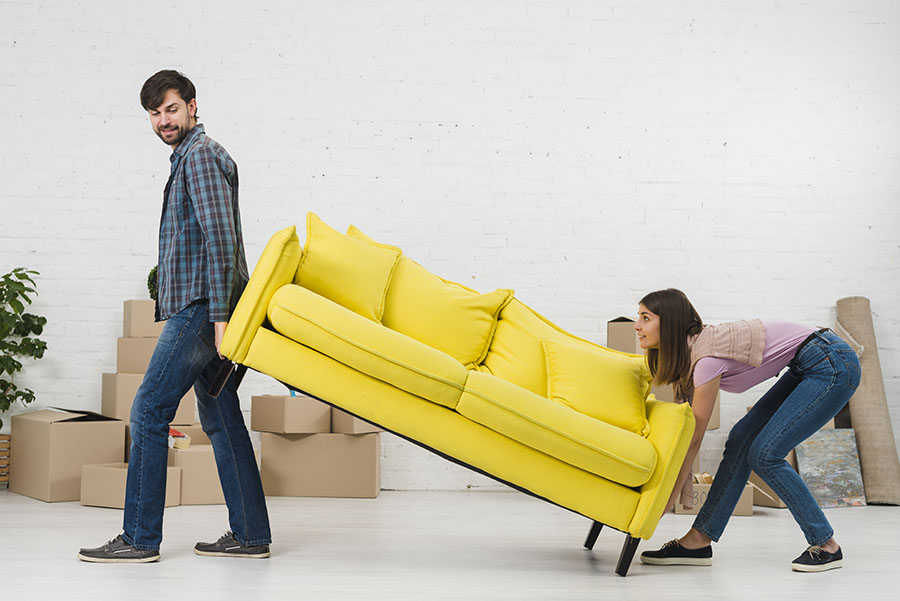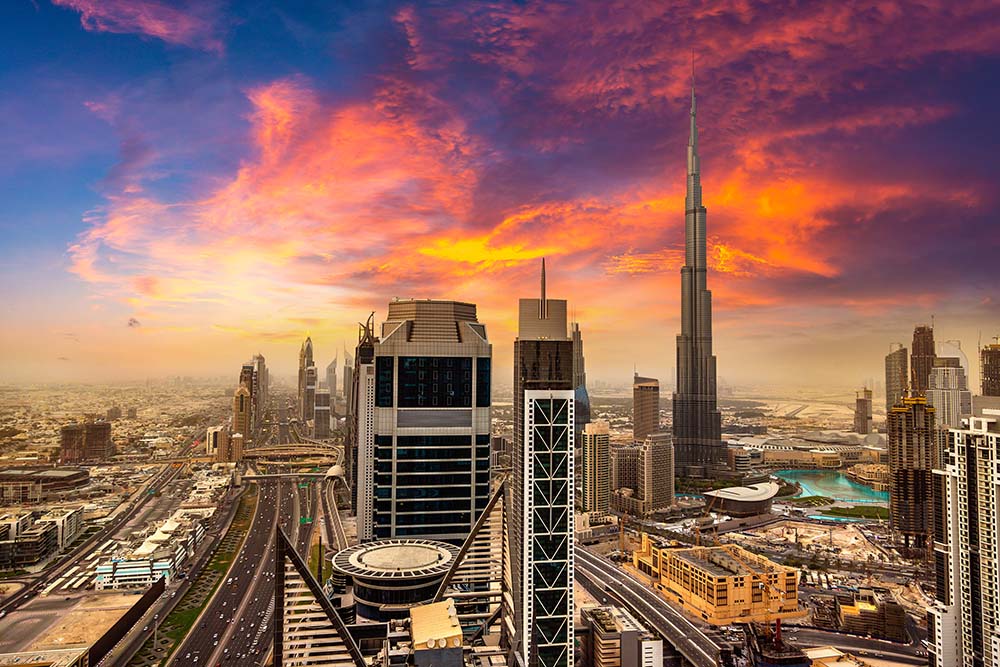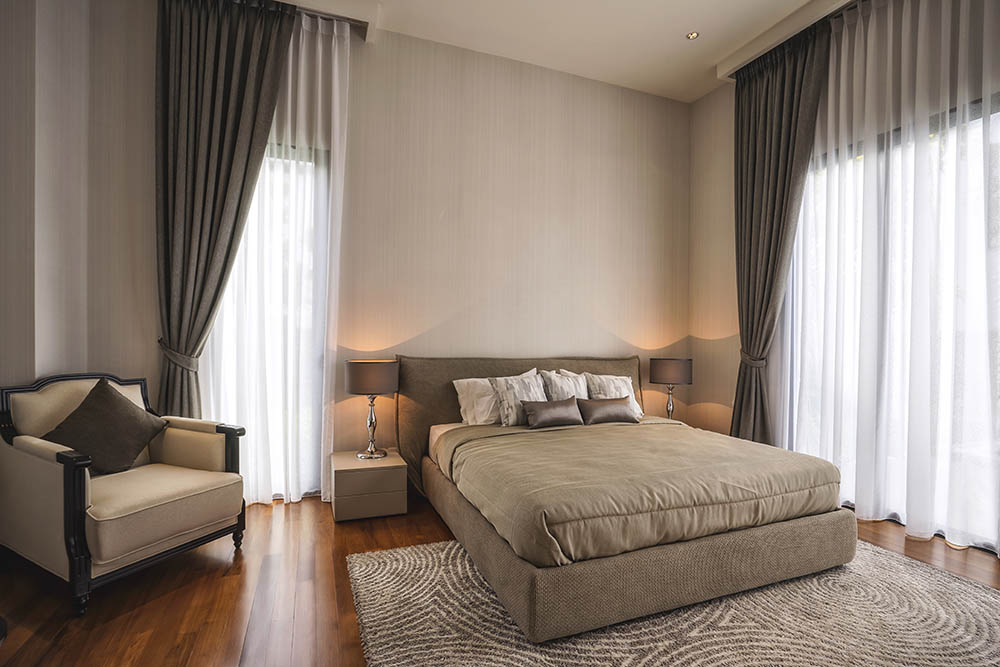
The United Arab Emirates is a modern state in the Middle East comprising seven states (or emirates) that used to be independent sheikdoms before their integration in 1971. Also, although Dubai, Abu Dhabi, Sharjah, Ajman, Ras Al Khaimah, Fujairah, and Umm Al-Qaiwain are governed by one federal body, each of them has its own local government, as well as, its own unique character.
Today, the UAE is considered one of the most stable and richest countries in the world offering both excellent living and working conditions. What’s more, it’s known for its high level of security, high salaries, and absence of corruption and taxes. As a result, lots of expats are drawn to the Emirates and many of them choose to reside there permanently. This is one of the main reasons why 85% of the UAE population is made up of foreign nationals.
Following this then it should come as no surprise that the United Arab Emirates is one of the Top 10 expat destinations in the world. In addition, since the state does not discourage the influx of new people, the requirements for moving to the UAE are few. The real bonus for expats though lies in the appeal that the UAE represents not just for work but for living too. It’s a true melting pot of people and cultures from all across the globe. It’s no wonder expats usually have no problem with immediately feeling at home when relocating to this eclectic country.

When considering relocating to the UAE one should bear in mind that the laws in the various emirates are slightly different from one another. Therefore, it is important to look into the specific laws associated with each emirate beforehand. Also, take note that housing prices and rental costs differ too. For instance, Dubai and Abu Dhabi are deemed to be the most expensive emirates, while Sharjah, Ajman, and Ras Al Khaimah are considered to be more affordable.
So people who end up moving to the UAE do so for various reasons. Some people come to set up a business since the state provides great conditions and incentives where this is concerned. Some people come because they are in search of (better) employment opportunities. People even come to the country just to study or join their loved ones who already live and work in the UAE. Well, whatever your reason, if you plan to stay in the UAE for more than 90 days you will need a long-term visa. This kind of visa is known as a resident visa and can be valid for between 2-3 years or even for up to 10 years. Furthermore, it can also be renewed as many times as needed.
In the UAE, there are several types of resident visas available and each one requires a different process to obtain one. For instance, if you open a company in the UAE, you are eligible for a business residence visa. Or if you enroll at a university or college in UAE, you are eligible for a student residence visa. Also, if an investor owes property to the state that is valued at over USD 272 thousand in then they are issued a resident visa. Alternatively, one can obtain a resident visa by opening a freelance permit in one of the UAE's freehold zones or by being employed by a local company. However, in a case where you have already been offered a job with a company in the UAE, it is most likely that your employer will process all the visa paperwork and cover all visa costs for you. Additionally, in some emirates, employers are also legally required to provide healthcare for expat employees and their dependents.
Both the UAE’s healthcare system and health insurance are exceptional because it is all-inclusive. Although, one should be aware that public healthcare is only available to Emirati nationals at little or no cost. This means that foreign residents are required to pay to use the same services or they can simply opt for private healthcare. So perhaps, it would be in one’s best interest to consider purchasing health insurance. After all, seeing as the healthcare system in the Emirates is world-renowned, the cost will be worth it in the long run. Even foreigners know this to be true as they flock to the UAE from various parts of the world to consult with highly skilled medical professionals and undergo various medical procedures. Following this then, a new trend has developed and it’s being called "medical tourism".
Still, in keeping with all things medical, it may surprise you to know that no special vaccinations are required when moving to the UAE. However, as in all other countries, there are recommended vaccines and vaccinations that all UAE residents are required to have. Also, if you’re considering traveling to any of the surrounding Middle Eastern countries you might want to consider getting hepatitis A and B shots, as well as, a rabies vaccine just to be on the safe side.
Another big expense that expats will face in the UAE is accommodation. In fact, this is the biggest expense that expats will face in this country. As a bonus though, housing is easy to come by and there are many types of houses to choose from some of which include but are not limited to, apartments, villas, townhouses. So Dubai and Abu Dhabi have the highest supply and variety of housing options available, as well as, the highest prices too. However, you still can find more reasonably priced housing options with similar quality in other emirates. For example, the emirate of Ras Al Khaimah is now becoming increasingly more popular among expats as the quality of housing there is just as good as in Dubai and Abu Dhabi. What’s more, the housing prices are reasonably priced too!
So if you plan to rent a home in the UAE, you can expect to spend at least half of your paycheck on rent. Also, although rental prices have dipped in recent years, the average rent, for instance in Dubai, can still be anywhere between USD 8,100 and 27,220 per annum. In addition to this, utilities in the UAE are also expensive. Especially, air conditioning as it is needed all year-round.
To find the most suitable apartment for rent in the Emirates, you should visit a reputable real estate website or get in touch directly with a real estate agency. In addition, it’s also important to make sure that your housing contract is certified. This shouldn’t be a problem since all housing contracts in the UAE are certified by the local governing body. For instance, in Dubai, all contracts are registered with the Dubai Land Department via EJARI, an online registration system. And the reason why housing contracts need to be certified is because they list all of the important information that is necessary such as the amount of the deposit, as well as, all the penalties involved for breaking a lease early. Also, landlords in some areas of the UAE are forbidden to raise the rent by more than a certain percentage every year.
Furthermore, purchasing a home as a foreigner in the Emirates is a pretty straightforward process since the local government encourages international investment in real estate. Moreover, foreigners can purchase property in the UAE in any of the designated freehold zones in the emirates. So if you’re looking for the latest UAE real estate offers that are located in the most conveniently located districts, options and prices are available on real estate websites such as Property Finder and more.
What’s more, people looking to relocate to the UAE should be aware of what one is allowed to bring to the country and what is prohibited. For example, if you’re moving to the Emirates with pets, bear in mind that certain breeds of dogs categorized as “fighting dogs” may not be brought into the Gulf country. Moreover, expats are only allowed to bring two pets with them.
You also need to remember that the United Arab Emirates is a predominantly Muslim-based country, so any publications or artwork that directly challenge the teachings and values of Islam are strictly prohibited. Also, if you would like to bring your own holy books with you, such as a Bible, you may do so. However, discretion is advised.
In addition to this, you may also want to check the UAE’s rules and regulations regarding the importing of alcohol and medicine. For instance, where alcohol is concerned, it is tolerated in the UAE but there are restrictions on the amount you are allowed to bring into the country. As for medicine, it faces even more restrictions than alcohol since the UAE has very strict drug policies. For instance, certain drugs that are more accessible in other countries as they are deemed "mild" or "over-the-counter" might very well be more restricted in the UAE. This can include drugs found in cough syrups and pain killers.
As the UAE is a highly advanced country, so you won’t need much when moving there. All you will need to take with you is your personal belongings. Anything else that you need can be purchased upon arrival and once you’ve settled in. Furthermore, outfitting an apartment in the UAE is relatively cheap. So there really is no need to bring any furniture or household items along with you.
When importing used items into the UAE, to qualify them for duty-free, you may need to provide a residence permit first. If a customs inspector believes something is being imported commercially, they can and will impose 5 percent tax on the item (customs tax may vary slightly from emirate to emirate).
Also, if you ship your items on their own (separately from you), then they must arrive within one month of your arrival. This is because you have to be present for your goods to clear customs. This is also why it's better to keep an itemized list of what you have shipped, as well as, any relevant receipts, invoices, and insurance papers. Because these may be needed in the event that you have to prove ownership of certain items.
If you do not have a residence visa yet, you can submit a letter from your UAE entry visa sponsor. However, you will need to make a deposit valuing 5 percent of your goods and once you’ve received your residence visa it will be refunded to you. So in order to receive the refund, you must submit your residence visa within 59 days upon the arrival of your goods in the UAE.
Plus, if you would like to bring your car to the UAE you will have to pay an import tax fee (about 5 percent of the cost of the vehicle). Also, you will need to make sure that you’ve got the required documentation, namely, a copy of your passport, registration documents, title or deed, copy of purchase invoice, certificate of origin, insurance policy, and your UAE residence permit. It also should be noted that cars with tinted windows are not allowed into the UAE.
So the UAE has a worldwide reputation as a “tax-free” country. However, one should not mistakenly take this to mean that the country has are no taxes. What is actually meant by the UAE being a “tax-free” country is that it doesn’t have much tax compared to other countries. More specifically, while there is no income tax in the country there are tax rates on rent that affect expats, as well as, excise taxes on harmful substances such as sodas and tobacco products.
Furthermore, foreign citizens living in the UAE can open a bank account at a local bank. To do so all they need is a residence visa and to be present in the country. The latter is necessary because many banks require future account holders to sign certain documents in person. Expats without a residence visa, such as during the visa processing time, may open an account with an international bank that is available both in the UAE and in their home country. This is more convenient, especially since international banks are some of the best banks and provide easily accessible bank accounts in the UAE.
In addition, those who relocate to the UAE with children will certainly want to know more about the education system and international schools the country has to offer. Expats can enroll their children in public, as well as, private schools. However, they must pay fees for both schools as government schools are only free for Emirati nationals. Expats interested in international schools in the UAE can choose from a whole range of nation-specific organizations such as British, American, German, Indian, or French, just to mention a few.
What’s more, while the Arabic language is still largely used in public schools, English is emphasized as a second language. Also, there are now more core subjects that are being taught in the universal tongue. Surprisingly, while the overall education quality of both public and private education is pretty similar most expats still opt to send their kids to private schools.
Moreover, when it comes to higher education, many foreign students still choose to return to their home country, although the UAE is home to some of the best universities and colleges in the Middle East.

Interestingly, the majority of people relocate to the UAE because of work. Although, working in the UAE is not only a tremendous career opportunity but the absence of income tax also makes it an ideal location for one to save up some money and build a nest egg. Plus, salaries in the UAE are sometimes several times higher than in the European labor market. In addition, there is always enough work in the hospitality sector, bank and finance sector, and healthcare. So while competition for jobs in the UAE is stiff, highly skilled professionals with outstanding CVs and a good knowledge of English can always be expected to find well-paid jobs.
So just to recap, the cost of living in the UAE is high but so is the quality. Also, with all of the extraordinary services and amazing facilities such as an advanced public transportation, education, and healthcare system, as well as, a wealth of incredible entertainment options the United Arab Emirates is the ideal country to live in. Plus, the government ensures that it takes proper care of its residents. For example, all bus stops in the UAE are equipped with air conditioning, the roads are pristine (practically perfect), and the streets are clean.
And if that’s not reason enough for you to consider relocating to the UAE, it’s also officially been declared as one of the safest countries in the world. One of the main reasons for this is because the country has an extremely low crime rate, especially since the police and special services monitor all violations very strictly. Also, another key reason for the UAE being one of the safest places in the world is because people in the Emirates do not steal. You can leave your car, apartment, or office unlocked without having to worry that something might be stolen from it.
So the UAE is a country that is constantly evolving and challenging itself. However, the pace at which it does this is overwhelming and unbelievable. Is it any wonder then that people still find it hard to believe that just a half of a century ago this highly advanced country was just a desert. What’s more, the country continues to strive to be the best at everything utilizing the most exciting innovations and cutting-edge technologies. For instance, Dubai has the world's largest driverless metro. Also, the UAE property market offers apartments with integrated smart home systems.
So as you can see, the UAE government has established excellent conditions for supporting expats. Not only do they realize that the country benefits greatly from foreign investment and foreign professionals, but they also end up establishing a mutually beneficial long-term relationship. And while relocating to the United Arab Emirates will surely take some extra effort and maybe even a little bit of compromising on your part, which is common with any move, relocating, to the Arab Emirates will certainly be more than worth it in the end.








































